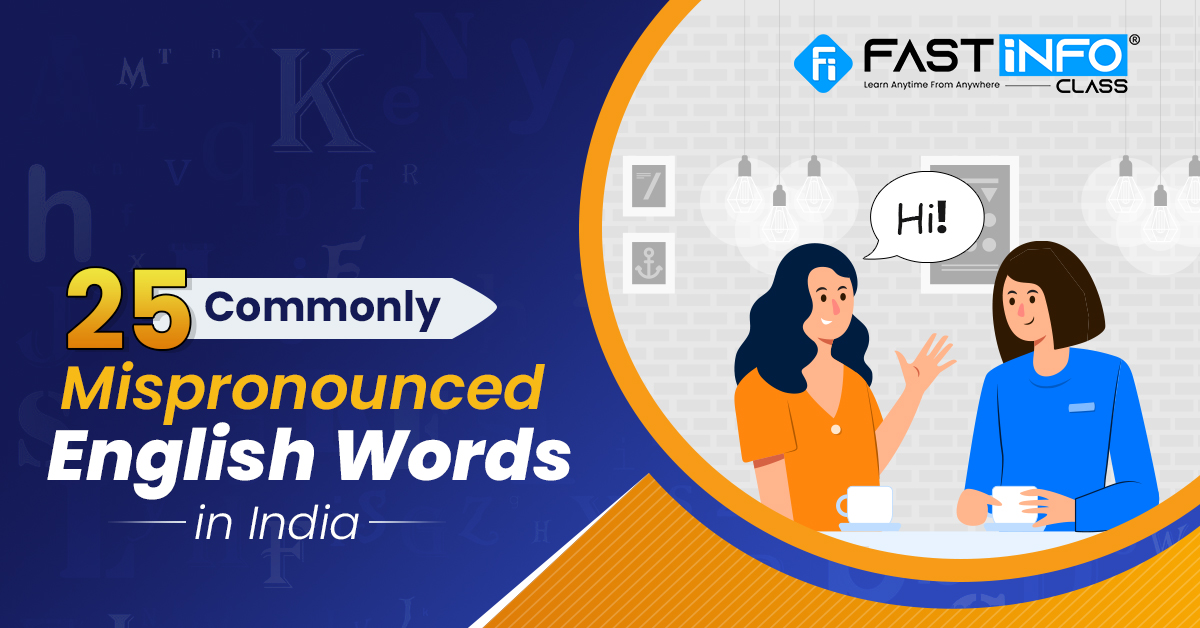Self Introduction in English for Job Interviews: A Guide
29 Dec, 2025
Welcome Offer for First Time Customers Get 15% off USE CODE: NEW15 AT CHECKOUT

Welcome Offer for First Time Customers Get 15% off USE CODE: NEW15 AT CHECKOUT

Welcome Offer for First Time Customers Get 15% off USE CODE: NEW15 AT CHECKOUT

Welcome Offer for First Time Customers Get 15% off USE CODE: NEW15 AT CHECKOUT

Welcome Offer for First Time Customers Get 15% off USE CODE: NEW15 AT CHECKOUT

Welcome Offer for First Time Customers Get 15% off USE CODE: NEW15 AT CHECKOUT

Welcome Offer for First Time Customers Get 15% off USE CODE: NEW15 AT CHECKOUT

Welcome Offer for First Time Customers Get 15% off USE CODE: NEW15 AT CHECKOUT


 By FastInfo Class
Published On 11 Nov 2025
Category IELTS
By FastInfo Class
Published On 11 Nov 2025
Category IELTS
The IELTS band score plays a crucial role in unlocking global opportunities for study, work, or migration. It does not matter whether you are aiming for a 7 or a solid 9, as improving your score is more than important and is all about strategy rather than stress. You need to master each section, understand the examiner's expectations, and the right approach to transform your performance. With smart tips, focused preparation, and daily practice, boosting your IELTS band score becomes very possible and achievable with the right confidence and consistency. This piece of content will provide you with a detailed guide on the IELTS band score chart.
The IELTS Band Score is a common way to evaluate your English language skills, which is rated on a scale of 1 to 9. You will be receiving individual scores in four sections, like listening, reading, writing, and speaking, and the overall band score will be the average of these sections. The IELTS band score helps employers, universities, and visa authorities figure out your capability to interact in English properly. If you have a higher score, it means you have improved your language proficiency and have more chances to study, work, or migrate to an English-speaking country.
There are four sections, which are listening, writing, reading, and speaking, and each of them is scored on a scale of 0 to 9. The total IELTS band score is the combined average of all four sections and is rounded to the nearest band, half or whole.
Let us discuss the rounding rules:
The number of right responses determines the listening and reading scores, and 1 mark is awarded for each right answer. Trained IELTS examiners use official band evaluators to measure the score of the speaking and writing sections. All the sections are checked equally.
The IELTS band score chart is a straightforward method to understand how your performance on the IELTS exam is measured. Each of the four sections, like speaking, writing, listening, and reading, has a band score between 0 and 9. Your overall band score is then calculated by these four scores. The following details include what each band score means.
The IELTS Listening section checks how well you can understand spoken English in academic and everyday situations. It includes a total of 40 questions, and each correct answer will give you 1 mark. The total score out of 40 is then changed into the IELTS band score, which ranges from Band 1 to Band 9. Here is how your score turns into a band score in the Listening section:
Important things to note:
By understanding the IELTS Listening band score system, you can aim for your target and improve your accuracy with focused preparation.
There are 40 questions in the IELTS reading section, and each correct response is worth one mark. After that, your entire score, out of 40, is turned into a band score ranging from 1 to 9. But the Academic and General Training IELTS scores are a little different:
Academic reading band score chart:
Additional tips that one should keep in mind:
Understanding your IELTS Reading band score helps you prepare better and aim higher.
Your IELTS band score is very much important for you if you have the intention to study, work, or relocate abroad. Depending on the varied requirements for university admission, employment, or immigration, different nations have varying expectations for scores. However, the minimum IELTS band score requirements in the top countries are listed below:
Canada
Some colleges accept a band score of 5.5 in one section, but 6.0 overall is safe.
United Kingdom
Always check university-specific requirements on www.gov.uk
Australia
For healthcare professions, scores of 7.0 or more may be required.
United States
TOEFL is also accepted in most U.S. institutions, but IELTS is growing in preference.
New Zealand
Understanding country-specific IELTS score requirements helps you plan better and choose the right destination based on your eligibility. Always double-check with the respective country’s official immigration or university websites.
In order to achieve a good IELTS band score, requires more than just knowing English, requires proper preparation. Remember that improving your score requires the right approach in addition to regular practice, and comprehension of how each section functions, regardless of your goals of studying overseas or applying for a visa. The following details include how to raise your IELTS score:
Improving your IELTS band score is not about perfection, but about progress. With daily practice, smart strategies, and clear goals, even a small step can take you closer to your dream score. Remember, confidence grows with consistency. Whether it is your first attempt or you are trying again, keep refining your skills, follow expert tips, and trust your journey. Your target band is within reach, just stay committed and focused. This article provided you with a detailed guide on the IELTS band score. Contact Fastinfo class and get enrolled in their IELTS preparation courses.
The IELTS band score is a number between 1 and 9 that shows your English language ability. It is crucial for studying, working, or settling abroad. Most universities and visa authorities use this score to judge if you are ready to live or learn in an English-speaking country.
You can refer to the official IELTS band score chart to understand how each skill, Listening, Reading, Writing, and Speaking is scored. The chart matches raw scores to band levels and helps you track your performance. It is a great way to set a target and see where you stand.
An IELTS band score calculator takes your scores in Listening, Reading, Writing, and Speaking and gives an average overall score. If the average ends in .25, it is rounded up to the next half band, and if it ends in .75, it is rounded up to the next full band.
Your IELTS band score for listening depends on the number of correct answers out of 40. For example, 35 correct answers usually give you Band 8. The scores vary slightly for each test version, so practising different mock tests is important.
A good IELTS band score for reading depends on your purpose and whether you are taking the Academic or General Training test. Typically, 30 correct answers out of 40 may earn you a Band 7 in Reading. The academic version is usually more challenging than the general one.

Self Introduction in English for Job Interviews: A Guide
29 Dec, 2025

10 Effective Ways to Improve IELTS Vocabulary
05 Dec, 2025

Common IELTS Speaking Topics & Questions for 2025-2026
02 Dec, 2025

Common Idioms and Phrases for IELTS
02 Dec, 2025

Best Conversation Topics In English For Daily Use
02 Dec, 2025

Daily English Conversation Practice for Beginners: 50 Useful Topics
29 Jun, 2023

Must Read Novels to Improve English for Beginners to Advanced
21 Feb, 2023

Top 15 Spoken English Books to Enhance Your Fluency
09 Sep, 2023

English Speaking Course for Beginners - Everything you must know
22 Sep, 2021

25 Commonly Mispronounced English Words in India
26 Apr, 2024